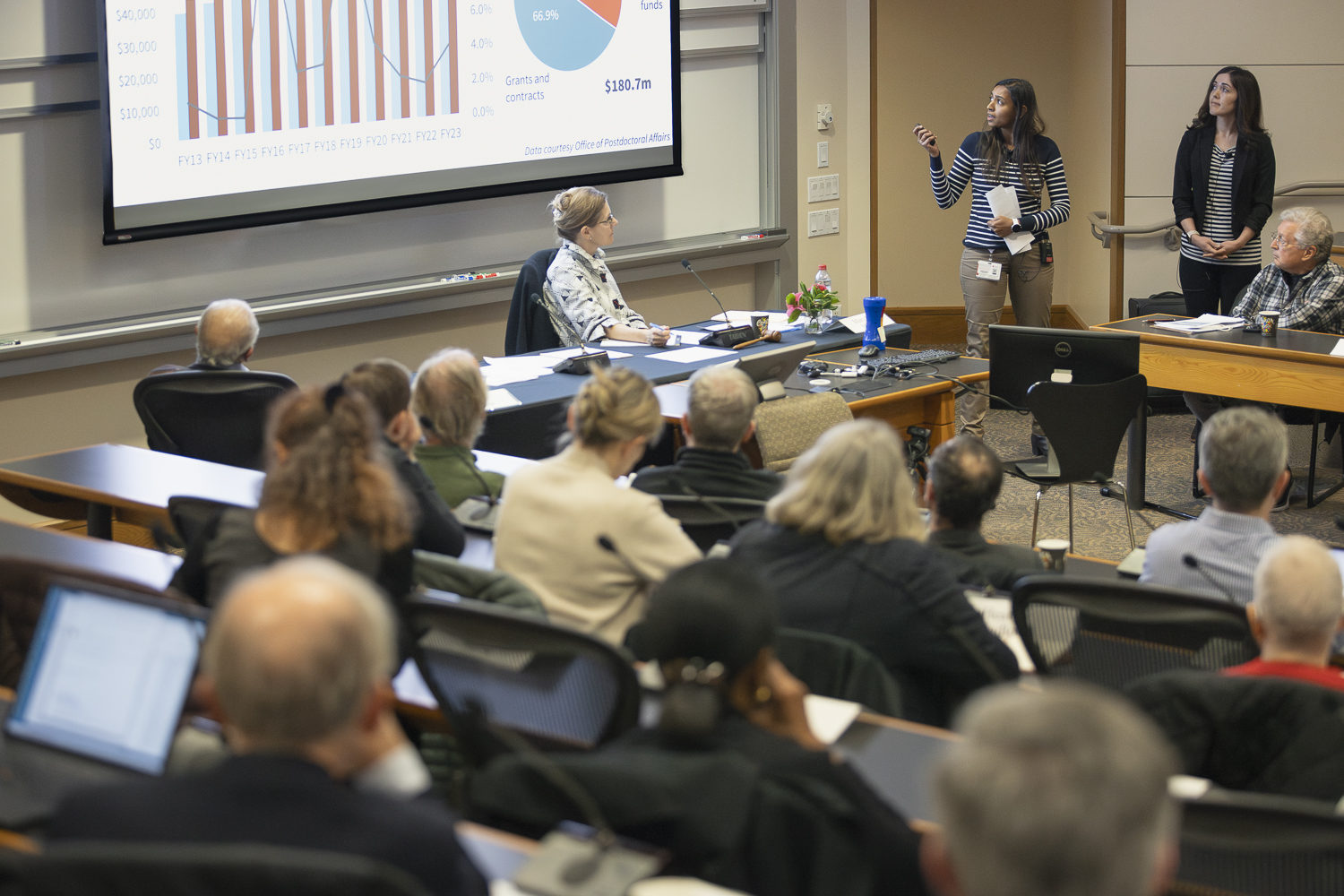Faculty Senate learns more about mentorship, training needs of postdocs
The Faculty Senate learned more about the professional development needs for postdoctoral scholars and heard an update from the president on activities in White Plaza.

Stanford University Postdoctoral Association Co-Chair Samyuktha Suresh and operations manager Joy McKenna discuss challenges and needs of postdoctoral scholars during a presentation to the Faculty Senate. (Image credit: Andrew Brodhead)
Representatives of the Stanford University Postdoctoral Association (SURPAS) underscored the need for training and mentorship for postdoctoral scholars to the Faculty Senate on Thursday.
Separately, in remarks to the senate, President Richard Saller discussed updates announced on Thursday that prohibit overnight displays and camping on White Plaza. Tabling on White Plaza will still be allowed between 8 a.m. and 8 p.m. These changes are intended to support both the safety and well-being of the community while maintaining the university’s commitment to peaceful expression of free speech on White Plaza, Saller said.
During a presentation, SURPAS operations manager Joy McKenna emphasized the importance of mentorship to postdocs because of the transitional nature of their work before they go into academic or non-academic careers. SURPAS suggests training for both mentors and mentees, and for postdocs to devote 10 percent of their paid work time, or four hours a week, to professional development, which is based on a recommendation from a National Institutes of Health report.
Stacey Bent, vice provost for graduate education and postdoctoral affairs, said she supported the SURPAS recommendation. “Our postdocs are here for professional training in every realm, not just in the laboratory or in their research,” Bent said. “We have many, many excellent advisors … but it’s variable and some of us could definitely benefit from more training and more understanding of current issues among our postdoctoral fellows.”
Some senators noted the needs of postdocs may vary greatly across the university’s different schools. SURPAS Co-Chair Samyuktha Suresh agreed and said SURPAS plans to conduct a formal study to better understand postdocs’ experiences and needs.
Jane Willenbring, associate professor of Earth and planetary sciences and, by courtesy, of Earth system science, pointed out that some federal grant proposals include a mentoring and professional development plan while others do not, and asked if there may be instances in which institutional funding is needed for training.
James Ferrell, professor of chemical and systems biology and of biochemistry, said that postdocs face unique challenges compared to graduate students and undergraduates, including a more limited support system and greater housing challenges. Suresh acknowledged that these are indeed major concerns among postdocs, but said addressing them will require longer time frames due to their complexity.
In memory
Senators also heard memorial resolutions for Jon Kosek and Thomas Rohlen.
Kosek, 90, clinical professor emeritus of pathology, died on Oct. 16, 2020.
Rohlen, a professor emeritus at the Stanford Graduate School of Education and a senior fellow emeritus at the Freeman Spogli Institute for International Studies, died March 6, 2022, at age 81.